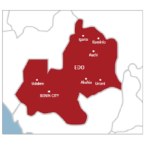The Presidential Enabling Business Environment Council (PEBEC) has commenced the 7th National Action Plan (NAP 7.0) to drive systemic business climate reforms and in line with the Federal Government commitment to improve business environment in Nigeria.
The NAP was introduced for the first time in February 2017 and has since become a signature homegrown 60-day accelerator and reform tool designed to coordinate the effective delivery of priority reforms of select ministries, departments and agencies annually.
- Ease of Doing Business: Let’s do more, Osinbajo urges agencies, others
- Amidst multiple taxes, FG to launch fresh ease of doing business initiative
Speaking at the formal launch and stakeholder engagement on the 7th NAP 7.0. on Monday in Abuja, the PEBEC Secretary and Special Adviser to the President on Ease of Doing Business, Dr. Jumoke Oduwole, said that the 7th NAP is designed to break away from the recent lackluster performances of the 5th and 6th NAP editions, which ended at 44 percent and 43 percent respectively.
“With the firm support of the council to always count upon, it is expected that NAP 7.0 reform implementation by our MDAs will mark a remarkable improvement over recent editions,” she said.
The PEBEC approved the 7th National Action Plan at its first meeting of 2022 held on February 1. NAP 7.0, which will run from 7th February to 7th April 2022 aims to further reduce the challenges faced by MSMEs across five areas.
The areas are Agro-Export Implementation Action Plan, Automation Reforms, Regulatory Reforms, Legislative/Judicial Reforms and Executive Order 01/ReportGov.NG compliance reforms.
Oduwole said, “The reforms include the streamlining and simplification of ago-export regulatory practices with a view to boosting the competitiveness of Nigeria’s agro-exports while enhancing Nigeria’s foreign exchange earnings as stated in the Agro-Export Plan.
“The Agro-Export Action Plan stems from the report of the Agro-Export Ad-Hoc Committee earlier constituted in November 2021 by His Excellency, Vice President Yemi Osinbajo, and Chair of the PEBEC.
“The Committee was chaired by the Honourable Minister of State for Industry, Trade and Investment while the Special Adviser to the President on Ease of Doing Business coordinated its activities.”
The NAP 7.0 seeks to intensify efforts at improving travel experience at our airports and to strengthen the automation of the business incorporation process of the Corporate Affairs Commission. Other reforms include the establishment of Small Claims Court across more States of the Federation, as well as to drive adoption of electronic filling of taxes by tax payers.
At the end of the 60-day window, it is expected that MSMEs will experience an enhanced trademark registration process, with vast improvements in the tracking and evaluation of MDAs’ compliance with the directives of the Executive Order 01 (EO1).
The EO1 implementation will be supported with improved complaint resolution on the ReportGov.NG platform, with the enlisting of more MDAs listed on the platform.
Oduwole said, “It is our earnest expectation that by April 7, the NAP 7.0 will have delivered reform results that are a remarkable improvement over the performance of previous MDA outings in recent times.
“In the area of Ports and trade facilitation, the focus is on a 60-day agro-export action plan targeted at ensuring that perishable agricultural produce earmarked for export are allowed to move freely through our ports.
“The faithful implementation of the Agro-export plan is expected to boost the competitiveness of Nigeria’s agro-exports, and create jobs, while enhancing Nigeria’s foreign exchange earnings and providing good rewards for the labour of farmers all across Nigeria.”
On his part, Project Manager, Enabling Business Environment Secretariat (EBES), Mr. Ayokunnu Ojeniyi, said the major focus of the session was on the agro exports because they want to increase the competitive mix of the agro exports brands.
He said that the feedback secretariat got was that the sector was facing serious challenges and the goal is to ensure that such problems are resolved and making travel expenses more comfortable.
“The issues with ports are varied, we have infrastructure issues, process issues our goal is to first of all work on the process issues, making sure that the agro exports have a dedicated link at the airports so that it will speed the turnaround time in that area.
“We also have other conversations going on last week we had a conversation with minister of Works updated us on the construction work on the Apapa and Oshodi you see the work that has been done and we have other pockets of that road that we hope that by June 2022 they will be done,” Ojeniyi said.
He said part of the main objective was to raise the competitiveness of the agro export sector working with the Central Bank of Nigeria (CBN), National Quarantine Services (NQS) and other related agencies.
The PEBEC chaired by Vice President Yemi Osinbajo, with the Minister of Industry, Trade and Investment as Vice Chair also consists of 13 key ministers, the Secretary to the Government of the Federation (SGF), the Head of Service and the Governor of the Central Bank of Nigeria (CBN).
The PEBEC also has expanded membership high-level representation from the National Assembly; the Judiciary, and state governments (Lagos and Kano) and a private sector representative among others.

 Join Daily Trust WhatsApp Community For Quick Access To News and Happenings Around You.
Join Daily Trust WhatsApp Community For Quick Access To News and Happenings Around You.


